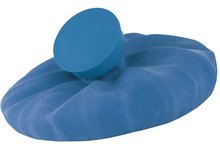What does fact checked mean?
At Healthfully, we strive to deliver objective content that is accurate and up-to-date. Our team periodically reviews articles in order to ensure content quality. The sources cited below consist of evidence from peer-reviewed journals, prominent medical organizations, academic associations, and government data.
The information contained on this site is for informational purposes only, and should not be used as a substitute for the advice of a professional health care provider. Please check with the appropriate physician regarding health questions and concerns. Although we strive to deliver accurate and up-to-date information, no guarantee to that effect is made.
Why Is My Skin So Dry?
If you are tired of the scaling, cracking, peeling and irritating, itching symptoms of dry skin, relief is within your reach. Most of the time, dry skin is caused by lifestyles and environmental conditions that can be altered. Although you may want to be evaluated by a dermatologist if you experience severe, chronic dryness, rest assured that most skin conditions are easily treated.
Common Causes
One major cause of dry skin is extreme temperatures with low humidity. To make matters worse, these temperatures often call for the use of air conditioners and air warming devices such as wood-burning stoves and central heating, which also cause skin dryness. Other culprits of dry skin are sun exposure, frequent hot baths or showers, harsh soaps and laundry detergents, and health conditions such as thyroid disorders and psoriasis. In addition, skin naturally becomes drier and thinner as you age, notes the American Academy of Dermatology 2.
- One major cause of dry skin is extreme temperatures with low humidity.
- To make matters worse, these temperatures often call for the use of air conditioners and air warming devices such as wood-burning stoves and central heating, which also cause skin dryness.
Not a Pretty Sight
Dry Skin on the Outer Ear
Learn More
If your skin is dry, it may appear rough, shrunken, dehydrated and flaky or scaly. Sometimes dry skin can become so severe that it becomes red and produces deep fissures that may bleed. Dry skin may also be intensely itchy on a regular basis and feel particularly tight after it is exposed to water 1.
Prevention and Treatment
Taking preventive actions is the best way to reduce discomfort associated with dry skin. For example, taking short baths and showers with warm, rather than hot, water can help skin retain more of its natural moisture. Also, consider using a mild cleanser or a gentle bar soap made for sensitive skin. Additionally, gently patting the skin dry and then applying moisturizer while the skin is still damp can help trap moisture in the skin’s cells. To enhance moisture in your skin, use thick, alcohol-free lotions, creams and ointments, which are more effective than light, non-greasy lotions. Indirect measures of keeping skin more moisturized include drinking plenty of water and using a humidifier in a dry home.
- Taking preventive actions is the best way to reduce discomfort associated with dry skin.
- Indirect measures of keeping skin more moisturized include drinking plenty of water and using a humidifier in a dry home.
When to See a Doctor
Causes of Red Bumps That Itch
Learn More
Consult a physician if your skin doesn’t improve despite attempts to keep it moisturized. Also seek assistance if your dry skin is red, peeling or scaling in large areas, or if it has open sores or infections. Moreover, you may need to receive additional treatments if your dry skin is caused by an underlying condition such as hypothyroidism.
Complications
Dry skin that isn’t properly tended to can lead to worse skin conditions. One such condition is atopic dermatitis, or eczema, which causes redness, inflammation and cracking. Another is folliculitis, which is an inflammation in the hair follicles. Potentially more dangerous is cellulitis, a bacterial infection of the skin’s tissues that could enter the blood vessels and lymphatic system.
- Dry skin that isn’t properly tended to can lead to worse skin conditions.
- Potentially more dangerous is cellulitis, a bacterial infection of the skin’s tissues that could enter the blood vessels and lymphatic system.
Related Articles
References
- Cleveland Clinic: Dry Skin/Itchy Skin
- American Academy of Dermatology: Dry Skin
- Harvard Medical School Harvard Health Publishing. 9 ways to banish dry skin.
- Farage MA, Miller KW, Elsner P, Maibach HI. Characteristics of the aging skin. Advances in Wound Care. 2013;2(1):5-10. doi:10.1089/wound.2011.0356
- Engebretsen K, Johansen J, Kezic S, Linneberg A, Thyssen J. The effect of environmental humidity and temperature on skin barrier function and dermatitis. J Eur Acad Dermatol and Venereol. 2016;30(2):223-249. doi:10.1111/jdv.13301
- Goad N, Gawkrodger D. Ambient humidity and the skin: the impact of air humidity in healthy and diseased states. J Eur Acad Dermatol and Venereol. 2016;30(8):1285-1294. doi:10.1111/jdv.13707
- Flament F, Bazin R, Rubert , Simonpietri , Piot B, Laquieze. Effect of the sun on visible clinical signs of aging in Caucasian skin. CCID. 2013;6: 221–232. doi:10.2147/CCID.S44686
- Penn Medicine. The winter itch: what causes dry skin, and what you can do about it. Updated January 30, 2017.
- U.S. Pharmacist. Causes and treatment of dry skin. Updated April 23, 2012.
- Griffiths CEM, van de Kerkhof P, Czarnecka-Operacz M. Psoriasis and atopic dermatitis. Dermatol Ther (Heidelb). 2017;7(S1):31-41. doi:10.1007/s13555-016-0167-9
- Combs SA, Teixeira JP, Germain MJ. Pruritus in kidney disease. Seminars in Nephrology. 2015;35(4):383-391. doi:10.1016/j.semnephrol.2015.06.009
Writer Bio
Christa Miller is a writing professional with expertise in massage therapy and health. Miller attended San Francisco State University to earn a Bachelor of Arts in creative writing with a minor in journalism and went on to earn an Arizona massage therapy license.








